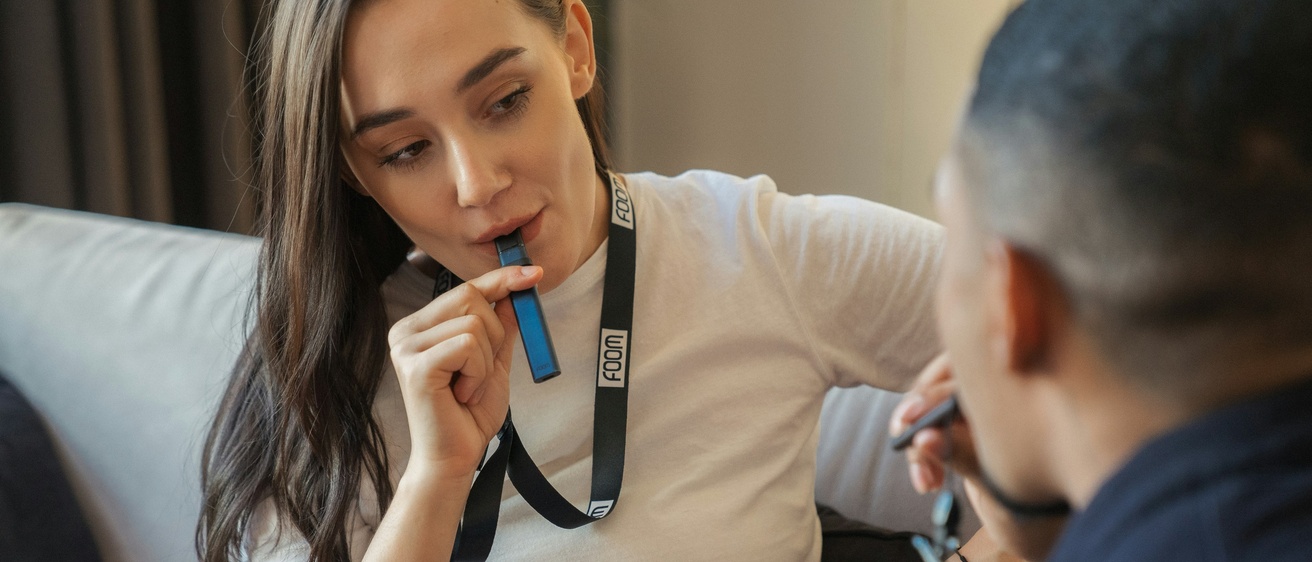A recently published University of Iowa study indicates that tobacco sales to minors remain a significant problem in 2025, despite a federal law enacted in 2019 (dubbed “Tobacco 21”) restricting the sale of tobacco products to those 21 and older.
The study reviewed retail inspection data in Iowa collected between 2017 and 2023, during which time 24% of retail sites had a violation and 6.9% of inspections had violations. Researchers at UI Health Care Stead Family Children’s Hospital led the study, with assistance from the UI Department of Geographical and Sustainability Sciences.
“One of the best things we can do to improve the overall health of our country is to prevent young people from using tobacco products."
- Anthony Fischer, MD, PhD, pediatric pulmonologist
The study offers intriguing new observations about the effectiveness of tobacco age restrictions in Iowa, including:
Pauses in inspections may cause a surge in violations.
The study shows the potential problems with pausing or reducing inspections, and indicates that when the number of inspections drops, the rates of violations may see a sharp increase. The highest violation rate observed followed 2020, the first year of the COVID-19 pandemic, when fewer inspections took place following public health guidelines. In 2021, following that period of low surveillance, violations surged to 10.6%, up from 3.2% in 2020 and 6.9% in 2019.
Vape shop proliferation may impact the ability to provide adequate inspections.
The study illustrates that specialty retailers, often called “vape shops,” are expanding quickly and may exceed the state’s capacity to inspect them. During the time studied, specialty tobacco/vape shops increased 3.8-fold in Iowa, far exceeding the state’s population rate increase.
Weak enforcement penalties may not be effective enough to deter sales.
The study concluded that, given the persistent high rates of violations in sales to minors, existing inspections and enforcement penalties don’t do enough to prevent sales to underage Iowans. For example, in 2023, a business would have been fined $320 by the federal government for two illegal sales within a 12-month period. While it is estimated that tobacco companies spend $100 million per year marketing products in Iowa, total federal penalties for violating age restrictions during the 2017-2023 study period were $152,903, according to the U.S. Food and Drug Administration (FDA). No retailer’s tobacco license was revoked by the FDA in the time studied, despite cases of repeated sales to those under 21.
Anthony Fischer, MD, PhD, pediatric pulmonologist with UI Health Care and principal investigator on the study, says he was astonished at the growth of the tobacco specialty retailer sector, and said in looking at the data and rate of violations, it could be interpreted that these specialty shops are “under-regulated.” He also didn’t expect the fines to be so small.
One limitation of the study is that the researchers only included data from a single state. Additional studies are needed in states with significantly stronger or weaker enforcement. However, the results align with studies conducted prior to Tobacco 21.
Fischer believes the findings indicate a need for more inspections and increased penalties for illegal tobacco sales, including restricting tobacco licenses for multiple offenses. He also believes that more oversight of the licensing process and more investment in youth tobacco prevention could help drive down violations.
“One of the best things we can do to improve the overall health of our country is to prevent young people from using tobacco products,” Fischer says.
About the researcher
Interim Division Director, Division of Pediatric Pulmonary Medicine
Assistant Professor of Pediatrics - Pulmonary Medicine
Motivation for research:
“As a pediatric pulmonologist, I have cared for teenage patients who were hospitalized after smoking or vaping exposures, and I regularly care for young children with asthma or chronic lung disease whose parents smoke or vape,” says Fischer. “When I ask the parents when they started smoking or vaping, they usually tell me that they got hooked as teens. They want to quit but it’s incredibly difficult. We need to do more to prevent young people from starting to use tobacco at all, and enforcing tobacco control laws is important part of this.”
